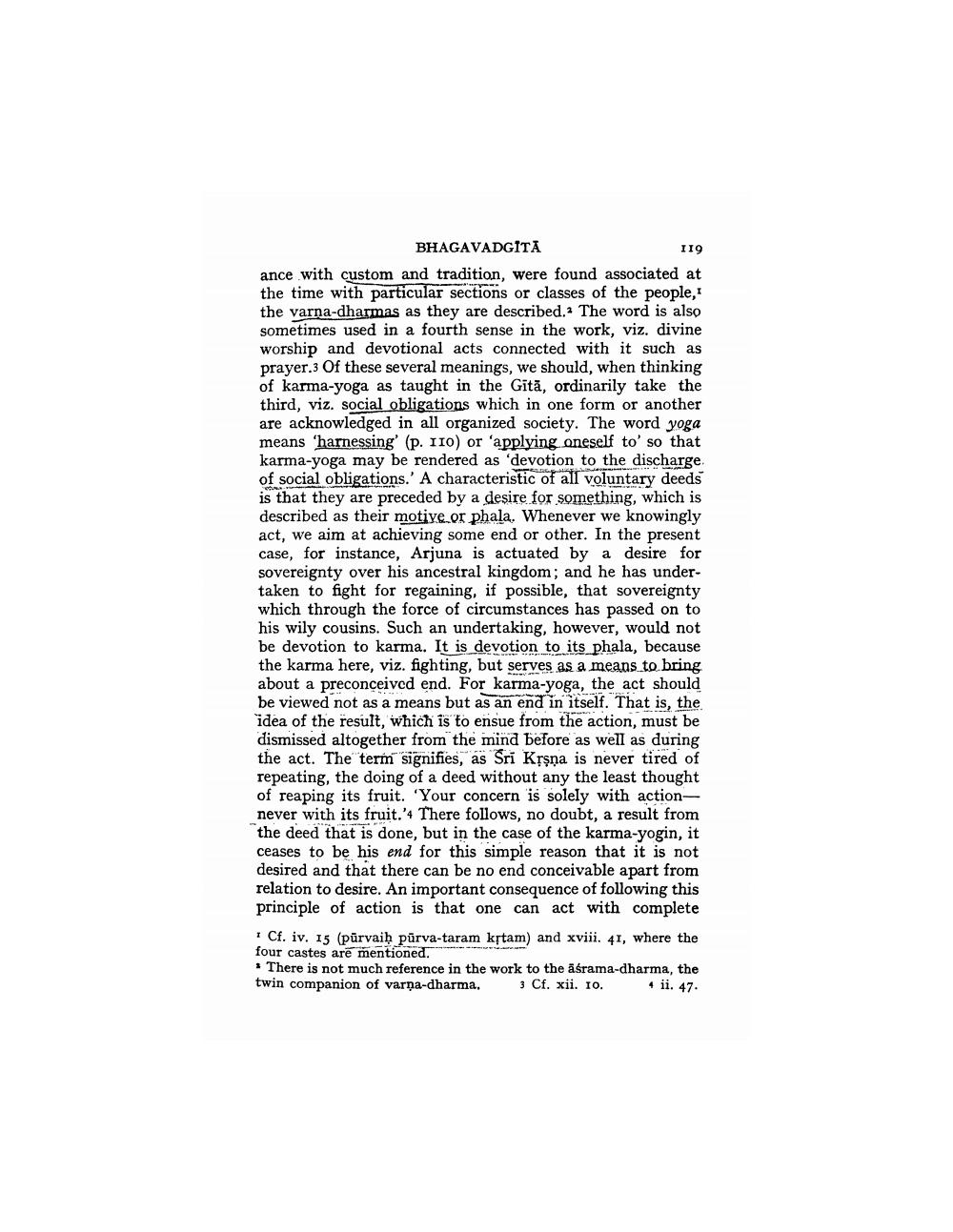________________
BHAGAVADGITA
119
ance with custom and tradition, were found associated at the time with particular sections or classes of the people, the varna-dharmas as they are described. The word is also sometimes used in a fourth sense in the work, viz. divine worship and devotional acts connected with it such as prayer.3 Of these several meanings, we should, when thinking of karma-yoga as taught in the Gită, ordinarily take the third, viz. social obligations which in one form or another are acknowledged in all organized society. The word yoga means 'harnessing' (p. 110) or 'applying oneself to' so that karma-yoga may be rendered as 'devotion to the discharge. of social obligations.' A characteristic of all voluntary deeds is that they are preceded by a desire for something, which is described as their motive or phala. Whenever we knowingly act, we aim at achieving some end or other. In the present case, for instance, Arjuna is actuated by a desire for sovereignty over his ancestral kingdom; and he has undertaken to fight for regaining, if possible, that sovereignty which through the force of circumstances has passed on to his wily cousins. Such an undertaking, however, would not be devotion to karma. It is devotion to its phala, because the karma here, viz. fighting, but serves as a means to bring about a preconceived end. For karma-yoga, the act should be viewed not as a means but as an end in itself. That is, the idea of the result, which is to ensue from the action, must be dismissed altogether from the mind before as well as during the act. The term signifies, as Sri Kṛṣṇa is never tired of repeating, the doing of a deed without any the least thought of reaping its fruit. 'Your concern is solely with actionnever with its fruit.'4 There follows, no doubt, a result from the deed that is done, but in the case of the karma-yogin, it ceases to be his end for this simple reason that it is not desired and that there can be no end conceivable apart from relation to desire. An important consequence of following this principle of action is that one can act with complete
Cf. iv. 15 (pūrvaiḥ pūrva-taram kṛtam) and xviii. 41, where the four castes are mentioned.
There is not much reference in the work to the äśrama-dharma, the twin companion of varna-dharma. 3 Cf. xii. 10. ii. 47.




